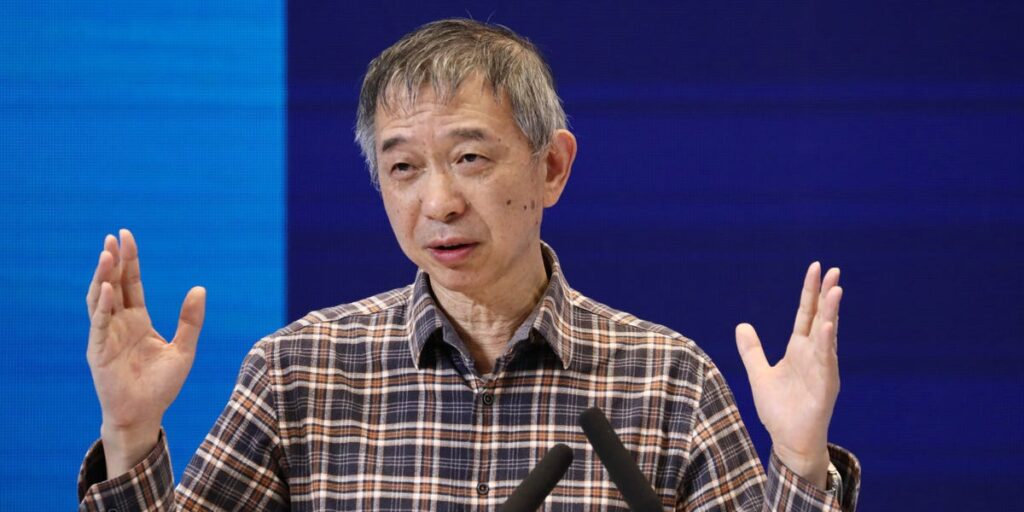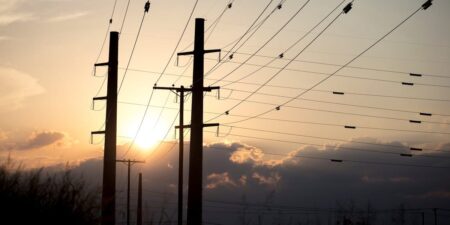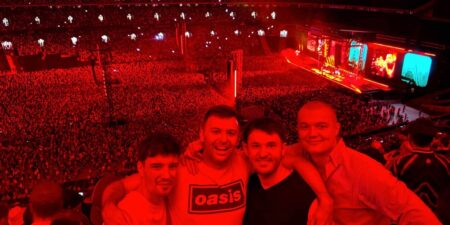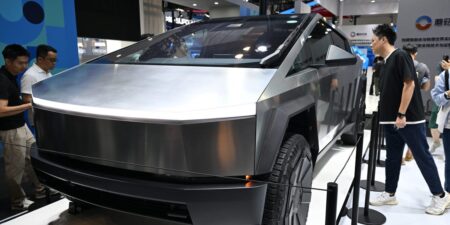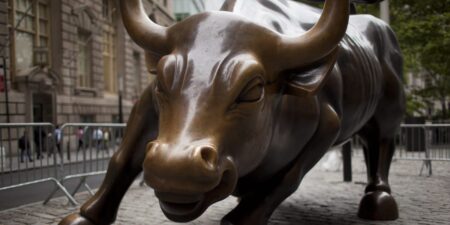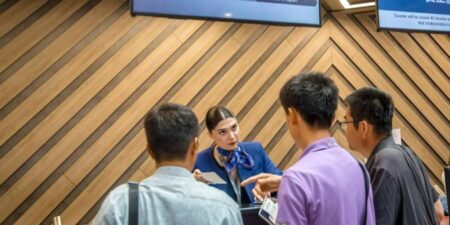True innovation doesn’t come from highly paid engineers, but from finding the right people to build the unknown, said the founder of Alibaba’s cloud and AI unit.
“The only thing you need to do is to get the right person,” Wang Jian said in an interview with Bloomberg published Monday. “Not really the expensive person because if it’s a new business, if it’s true innovation, that basically means talent,” he added.
Wang, who built Alibaba Cloud in 2009, said American tech giants are “very much focused on the existing success of the business.”
“And existing — it’s average of technology,” the computer scientist said. “We have a tremendous opportunity to look at technology nobody knows today.”
“What happened in Silicon Valley is not the winning formula,” Wang said.
Wang’s comments come after Big Tech companies are paying top dollar to recruit elite AI talent, a trend that’s likened to sports franchises competing for superstar athletes like Cristiano Ronaldo.
The competition reached another level when Meta recruited Scale’s CEO, Alexandr Wang, last month as part of a $14.3 billion deal to take a 49% stake in his company. Then, Sam Altman, the CEO of OpenAI, said Meta had tried to poach his best employees with $100 million signing bonuses.
Just weeks ago, Google paid $2.4 billion to hire the CEO and top talent of AI startup Windsurf and license its intellectual property. OpenAI had planned to buy Windsurf for $3 billion, but the deal fell apart.
“It’s a typical way of doing things,” Wang Jian said of Big Tech’s hiring strategy. Chasing the same pool of in-demand talent isn’t always a winning move, he added.
“Whenever everybody knows that these are talents,” Wang said, “it’s better for you not to get it.”
“It’s really about the vision, you know, where you want to go.”
Wang and Alibaba did not respond to a request for comment from Business Insider.
China’s AI race is ‘very healthy’ competition
Wang also said that the rivalry among Chinese AI firms is not cutthroat.
No single person or company can sprint forever, he said. But collectively, the ecosystem can still move fast.
He pointed to a pattern he’s observed: One company surges ahead, then slows. Then another takes the lead. Over time, the first catches up again.
“You can have the very fast iteration of the technology because of this competition,” he said.
“I don’t think it’s brutal, but I think it’s very healthy,” he added.
China’s biggest tech players have focused on open-source AI models, which have code and architecture that are publicly available for anyone to use, modify, or build on.
One analyst told Business Insider previously that Chinese firms are prioritizing consolidation to stay competitive. For instance, Tencent has deployed its Hunyuan model and DeepSeek R1 across its massive ecosystem, including WeChat. Baidu has also integrated DeepSeek R1 into its search engine.
The country is closing the gap with the US in the AI race.
In a Stratechery interview earlier this year, Nvidia’s CEO, Jensen Huang, said that China is doing “fantastic” in the AI market, with homegrown models like DeepSeek and Manus emerging as credible challengers to US-built systems.
He said China’s AI researchers are some of the best in the world, and it’s no surprise that US companies like OpenAI and Anthropic are hiring them.
“Our competition in China is really intense,” Huang said in May at the Computex Taipei tech conference in Taiwan.
Huang has also said that the US and China are neck and neck in the AI chip race. “China is right behind us. We’re very, very close.”
Read the full article here







